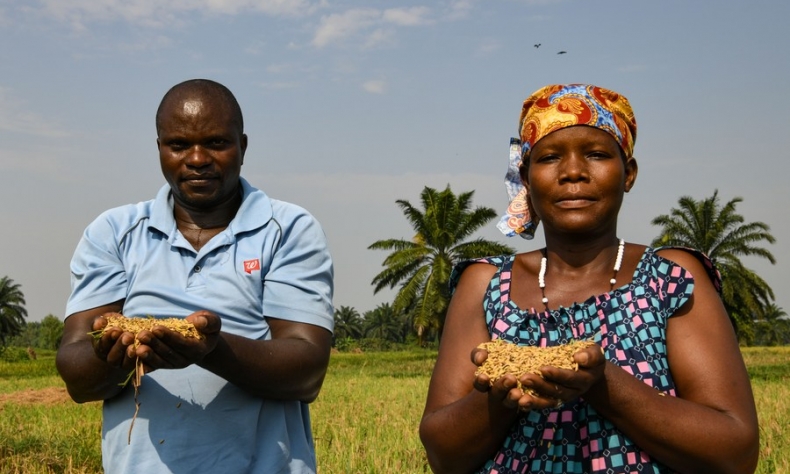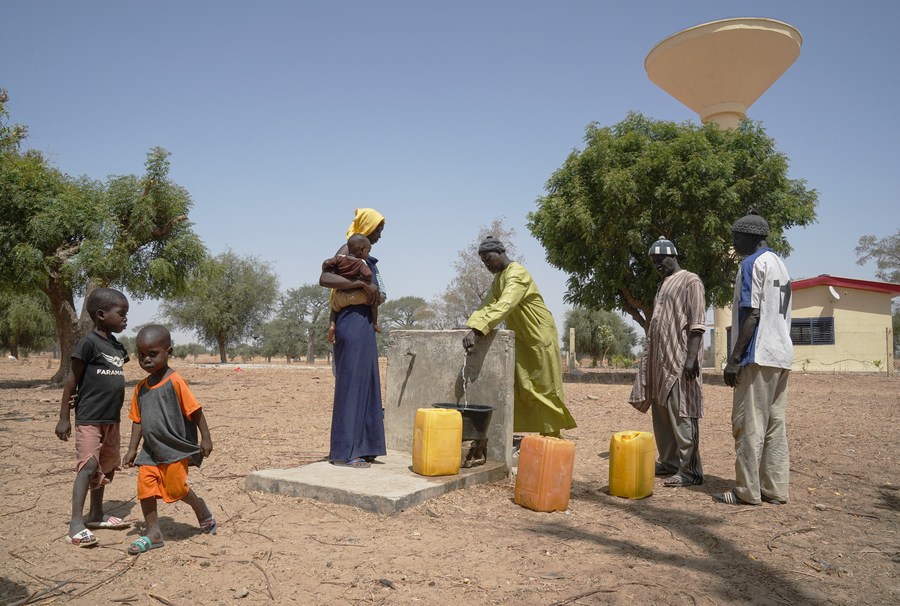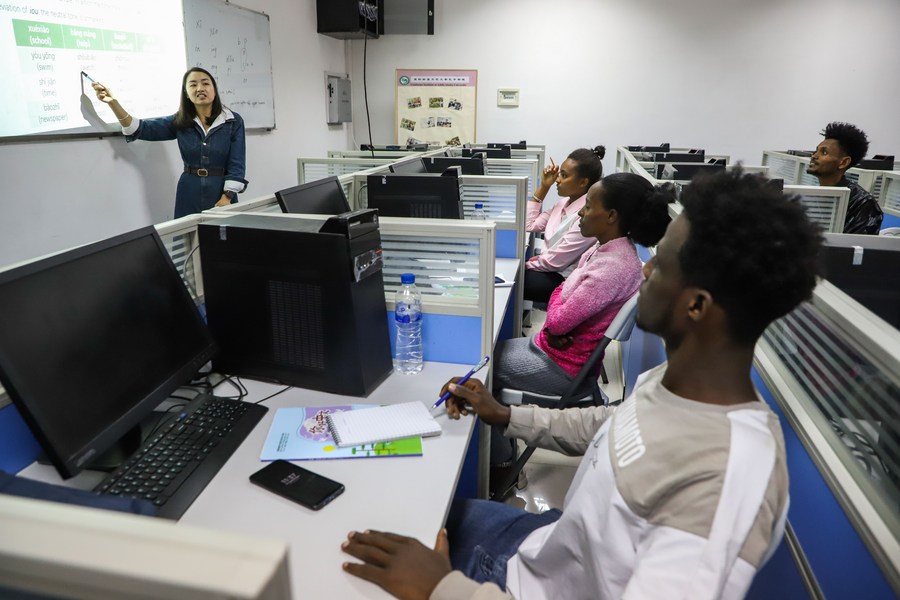Filling the Gaps

With focus on ‘small yet smart’ projects, the BRI continues to bring opportunities for development around the world.
In this year’s government work report, Chinese Premier Li Qiang pointed out that China will strive for solid progress in high-quality Belt and Road cooperation. The country will steadily advance cooperation on major projects and implement a number of “small yet smart” projects for improving the people’s well-being.
As an international public product and cooperation platform, the achievements of the Belt and Road Initiative (BRI) in the past 10 years have been noticed around the world. However, the spread of misinformation and groundless accusations against the programmes have never stopped. For instance, some Western media have claimed that the investment amount of the BRI has significantly “shrunk,” China’s loans to Belt and Road countries are declining, and its investment is unsustainable.
But Chinese and foreign experts interviewed by ChinAfrica said that despite the severe impact of the COVID-19 pandemic, the cooperation in jointly building the BRI remains robust and has achieved remarkable results. In fact, the BRI is entering a harvest period. Belt and Road cooperation has progressed from “sketching the outline” to “filling in the details,” and blueprints have been turned into real projects. A large number of signature projects and “small yet smart” people-centred programmes have been launched to provide opportunities and share dividends with the world.
Ulterior motives
Dennis Munene, executive director of the China-Africa Centre at the Africa Policy Institute and a Ph.D. candidate at the University of the Chinese Academy of Social Sciences, believes that Western countries have a pessimistic view of the BRI mainly because they regard it as an arena of geopolitical rivalry. He said that for a long time, the development of countries in the Global South has been hindered by the West.
Taking Africa as an example, during the colonial era, the infrastructure built by developed countries in Africa was exploitative as it was intended to extract resources and promote their own development, but it plunged Africa into poverty and backwardness. On the contrary, the Belt and Road cooperation projects have presented a new model of mutually beneficial cooperation and promoted sustainable development in Africa.
“The development opportunities that the BRI brings to developing countries will inevitably be smeared and criticised by some Western countries, because even if they imitate the BRI and propose one plan after another, they cannot compete with China, as their projects have turned out to be nothing more than empty promises,” Munene told ChinAfrica.
In June 2013, then US President Barack Obama launched the Power Africa project with the ambitious goal of doubling access to electricity in Sub-Saharan Africa. In 2018, the Trump administration’s Prosper Africa initiative aimed to substantially increase US-African trade and investment ties and spur US and African economic growth; and then in 2022 the Biden administration launched the Security Strategy for Sub-Saharan Africa. The names are different, but the facts on the ground show they are all paying lip service, according to Munene.

By comparison, by June 2023, China has signed more than 200 BRI cooperation agreements with more than 150 countries and 30 international organisations across five continents, yielding a number of signature projects and small-scale yet impactful projects. A report from the World Bank shows that BRI transport corridors will help in two critical ways – lowering travel times and increasing trade and investment. Along economic corridors, the study estimates that travel times will decline by up to 12 percent once completed.
“Western countries weaponise information to suit their own narratives and agenda, so they would downplay the gains made by the BRI,” Munene said.
Small ventures, big hopes
In fact, the BRI projects have not stagnated or shrunk. Infrastructure megaprojects are not the only way to fill development gaps. The reality is that now there are a large number of signature projects supplemented by “small yet smart” people-centred programmes, said Wang Heng, deputy director of the Institute of African Studies at Zhejiang Normal University.
“Small yet smart” projects refer to projects with relatively small investments and quick results. They focus on poverty reduction, education, medical care, public health and other livelihood issues, so that the BRI can better benefit the people.
In 2021, at a symposium on BRI development, Chinese President Xi Jinping highlighted the role of BRI projects in improving people’s well-being, saying “small yet smart” projects could have a direct impact on people.
“Projects related to people’s livelihood are crucial to rapidly boosting the sense of gain among the people in BRI participating countries. They could produce immediate and evident results,” he said at the symposium.
He suggested prioritising these “small yet smart” projects in international cooperation, stepping up overall planning in the future, and better leveraging funds for projects that answer to the public’s demands and forge closer ties among people.
“Due to the devastating impact of the COVID-19 pandemic, most economies, including China, have to slow down the pace of high-risk projects and firmly adhere to the bottom line of no systemic risks,” Yoro Diallo, executive director of the Centre for Francophone Studies, Institute of African Studies of Zhejiang Normal University, told ChinAfrica.
Wang Jian, a professor of history and international politics at the Shanghai Academy of Social Sciences, believes that the construction of BRI projects should not blindly pursue scale and speed, but should reduce operational and management risks. The projects should generate sustainable benefits for the local people and drive local employment and industrial development.
Diallo said that in developing countries, particularly in African countries, large-scale projects certainly have their place in the development process in general. “Small yet smart” projects, which respect the lifestyles of local communities while complying with environmental standards, better meet the needs of said communities. These completed projects considerably increase the economic returns of localities and minimise financial risks.

New growth drivers
In the past 10 years, the BRI has created new development opportunities for the world. In the future, it will continue to be an avenue for China to share opportunities and seek common development with the world, leading to common prosperity.
“In fact, whether it is a landmark infrastructure project or a ‘small yet smart’ project, it is of great significance,” said Zhang Zhongxiang, director of the Centre for African Studies at Shanghai Normal University. “‘Small yet smart’ projects can increase the sense of gain and happiness among the local people, because such projects are on their side, and they are visible and tangible.”
Since 2021, a large number of “small yet smart” projects have gradually been implemented, covering a wide range of areas, including green ecology, agricultural cooperation, water conservancy, forestry, hybrid rice and Juncao farming technology. They have played an important role in helping to promote rural poverty reduction in Asia, Africa, the South Pacific, Latin America and the Caribbean.
In Africa, since the first Luban Workshop was launched in Djibouti in March 2019, China has established 11 Luban Workshops in 10 African countries including Egypt and Kenya to provide technical and vocational training opportunities for African youths, which effectively promote local social and economic development. In June 2022, a water supply project built by China Railway Construction Corp. Ltd. was completed in Cabinda, Angola, which helped to solve the local water shortage problem and allowed many villagers to directly access tap water for the first time.
In South Africa, Kenya, Nigeria, Tanzania, and Lesotho, China’s Juncao technology has allowed small-scale farmers to increase their income and improve their living standards.
Diallo said that currently, the world is in turmoil and the global economic recovery is weak. However, these have not only failed to reverse the momentum of Belt and Road cooperation, but have also highlighted the strong resilience, vitality and bright prospects of the cooperation.
“In an uncertain and unstable world, countries urgently need to cooperate to promote development, and the contribution of the BRI to the global economy is even more important today,” he said.
 Facebook
Facebook
 Twitter
Twitter
 Linkedin
Linkedin
 Google +
Google +










